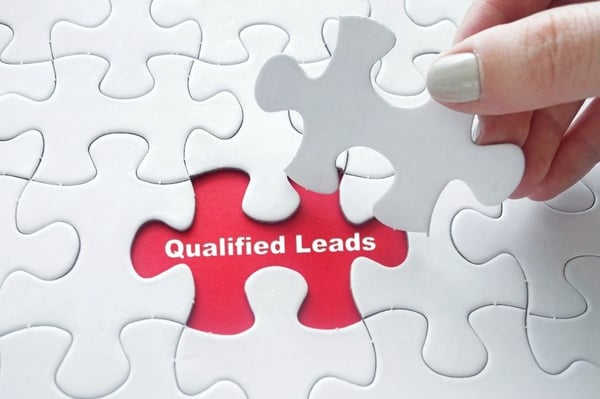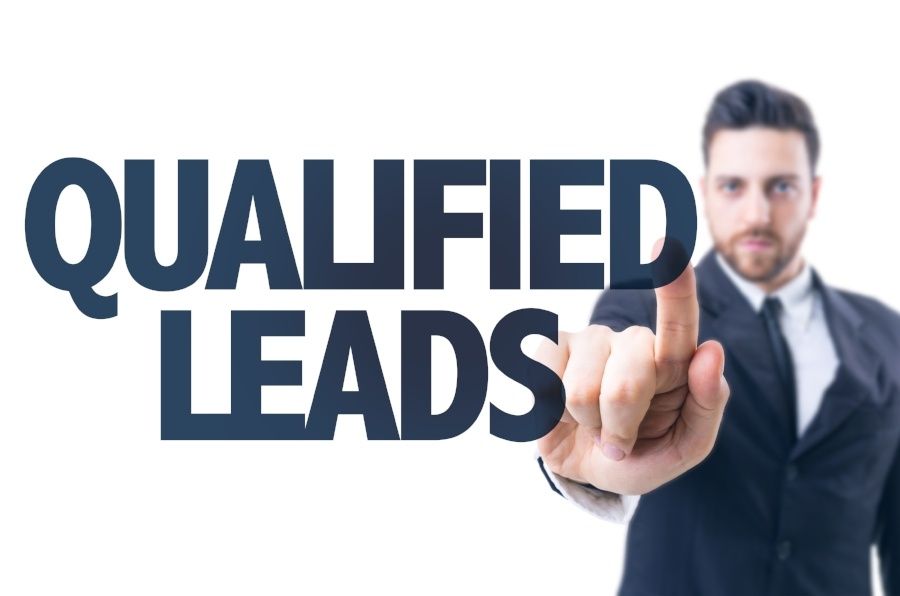
A sales qualified lead is not a marketing qualified lead, which has its own qualifications that must be considered when labeling prospects in your funnel. Many companies understand that they should be putting more effort into scoring their leads.
They know the terms — marketing qualified, sales qualified, etc. — but don’t know how to begin labeling their leads using their own internal processes to identify and label them accurately.
Today 22% of sales reps identify ‘qualifying’ as the most challenging part of the sales process. It’s an area where many companies struggle.
The truth is that a sales qualified leads are different things to different companies.
While the label often does encompass similar actions between companies, alerting them to the fact that a lead can reliably be passed off to sales — every company has their own processes that need to be taken into account when determining what a sales qualified lead means to them.
Marking a lead as “sales qualified” too early means that you will be pitching to leads that aren’t ready to buy, and risk losing them as a customer altogether.
You must make sure that that you are able to identify what actions constitute a lead being sales-ready within your funnel and set up systems for identifying when those actions have been taken. It’s an important step in optimizing your funnel and lead generation practices.
Source: LeadFuze
How Do You Define Sales Qualified Leads
A sales qualified lead (SQL) is a prospective customer that has been researched and vetted internally by your organization. First, the lead should be vetted by your marketing team, and then by your sales team to determine that they are a good fit for the next step in the customer’s journey.
In short, an SQL is someone that has come to your business and expressed interest in your products. That interest could come through conversations that they have had with your reps, through actions they have taken while engaging with your marketing materials or simply through being such a perfect fit for your product that they are quickly ready to speak with a sales rep.
Most companies have very specific parameters that must be met before a lead can be marked as an SQL. Sometimes, interactions with a particular prospect show that they are ready for the designation without meeting all of your criteria, but because they have expressed interest in a way that is not accounted for by your systems.
Once a lead has expressed interest in your product, they are marked as an SQL and passed on to your sales team who vets the lead as well. They determine whether the lead is sales-ready, and then clear the lead to enter the next stage of the sales process — likely, where they will be contacted by a sales rep.
The process can look similar between two different companies, but often the criteria for marking a lead as “sales-qualified” is customized for your own internal processes and marketing funnel.
Source: TR
What’s the Difference Between an SQL and MQL?
There is often quite a bit of confusion when it comes to the differences between sales qualified leads and marketing qualified leads. Many companies figure that if a prospect is ready to receive marketing materials they also must be ready to engage in the sales process. That is often not the case, and most leads require ongoing nurturing before they are ready to begin engaging with your sales reps.
There are many different types of metrics that companies can use to designate a sales qualified leads — time spent engaging with your marketing materials, responses, clicked links, etc. — but in its most simple indicator for a sales qualified lead is their willingness to turn their engagement into a conversation with your sales reps.
There are multiple ways for them to signal this readiness, including:
- Engagement with your company on social media.
- Sharing their details through an opt-in form.
- Reaching out to your reps through email.
These are just a few of the many different ways that a lead can signal their willingness to begin engaging with your sales reps. Other examples might include attendance to a webinar and seminar that your company hosts, leaving comments on the content that you share that signals their intent, or inquiring about the pricing of your service.
How to Qualify a SQL
Now that you understand some of the different actions that may signal intent, you still have to actually qualify the lead through research before they are officially marked as an SQL.
Depending on the size of your market and pricing of your product, the lead may or may not be a good fit for your product, even if they express interest. In some industries, selling to a client that will only stay with the company for a short period of time is not worth your time and your reps would be better off engaging with more qualified candidates.
There are a few simple questions that all sales reps should ask to qualify a lead and make sure that they are ready to be designated sales-qualified:
- What are their needs? How much will your product be able to benefit them in their current situation? Are they even ready for your product? These are very important questions when qualifying.
- What solution are they using currently? Are they currently using another solution that your product will replace? Determine whether or not there is a lot of overlap between the two solutions or whether they can, or should, co-exist within their processes at the same time.
- Who is the decision-maker? Who is responsible for making the final call on whether or not they go with your product. Sales reps have to make sure that they are engaging with someone that will make the final call and not someone who is simply conducting research.
- Are they ready to move forward? They might have interest, but if they don’t have the will to actually buy the product at this time, they are not truly sales-qualified.
All of these factors and questions need to be taken into account when you are determining whether or not a prospect is sales-qualified.
Sales Qualified Leads Important for Optimization
Here at RiseFuel, I work with companies to help them improve their sales processes, enact sales enablement best practices, and arm their sales teams with the tools that they need to improve. Having a solid understanding of what a sales qualified lead is, why it is important, and how to designate them reliably is a critical step for improving the efficiency of any sales team.














